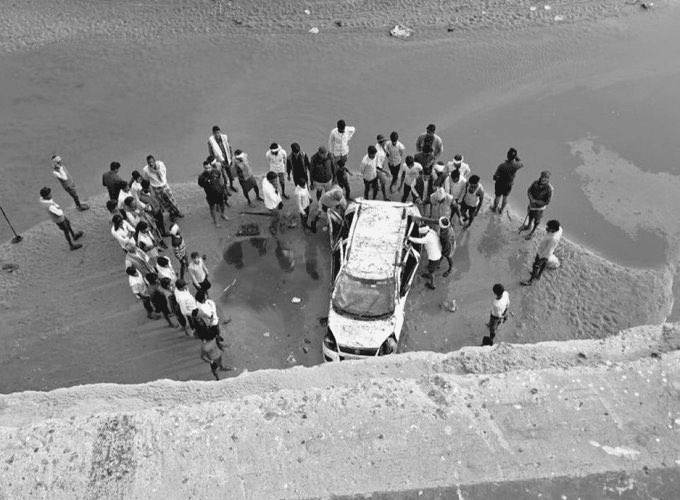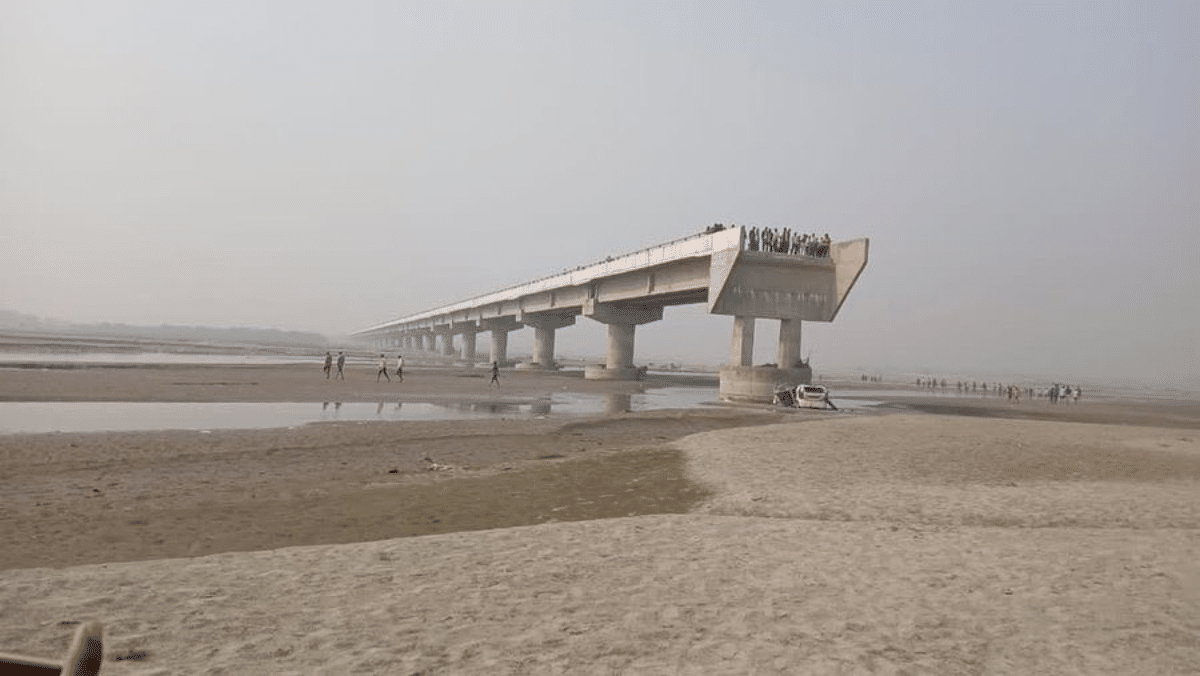Three people died in an accident in the Indian state of Uttar Pradesh after their car fell from an incomplete bridge. They were allegedly following the directions from Google Maps . After the furor over the freak accident, India has not only sued some government officials but also named an official of Google Maps. Here we’ll discuss more about the incident and whether Google Maps can really be held liable for the tragic loss of lives.
For context, Amit Kumar, Vivek Kumar, and Ajit Kumar were driving to a family wedding in Dataganj. Following the GPS, they took an incomplete bridge and the vehicle landed in the Ramganga River. Notably, the bridge was in use until last year but it was washed away in rains. However, no signs were installed to indicate the damage and the road wasn’t closed for use.
The three were reportedly driving fast and couldn’t stop the vehicle on time, plunging the vehicle into the river. The heavy fog did not help matters as it only reduced the visibility. The impact was so severe that all three died on the spot itself while the vehicle suffered massive damage.

Commenting on the accident, a Google spokesperson said, “Our deepest sympathies go out to the families. We’re working closely with the authorities and providing our support to investigate the issue.”
This Is Far From the First Time
To be sure, this is not the first such incident when following Google Maps turned out to be fatal. Just last year, two doctors in the Indian state of Kerala drowned to death after their car plunged into the Periyar River after they were allegedly misled by Google Maps.
A survivor in that fatal incident then said, “Yes we were using GPS. However, since I was not driving, I can’t confirm if it was a technical glitch of the application or a human error.” While it wasn’t clear whether they were led into the river by the navigation or they lost their way, the state police cautioned people against using Google Maps during the monsoon season.
In 2021, another driver in the Indian state of Maharashtra died after he drove his vehicle into a dam, allegedly following directions on Google Maps to reach a mountain peak.
Google is incidentally facing a lawsuit in the US from the family of a North Carolina man named Philip Paxson who alleges that its Maps led him to drive off a collapsed bridge which led to his unfortunate death.
“We’ve discovered that Google Maps misdirected motorists like Mr. Paxson onto this collapsed road for years, despite receiving complaints from the public demanding that Google fix its map and directions to mark the road as CLOSED,” said Paxson family attorney Robert Zimmerman.
Trusting Google Maps Blindly Can Take Your Life
A Maruti WagonR fell off a broken bridge and 3 people lost their lives. This bridge was washed away during the 2022 floods and has remained the same since. Who should be held responsible? Government or Google Maps? pic.twitter.com/VqmSBnIWSE
— MotorOctane (@MotorOctane) November 25, 2024
Can Google Be Held Liable for Wrong Information on Maps?
India has filed a criminal case against a Google Regional Manager and some employees of the state-owned Public Works Department (PWD) under sections related to “culpable homicide not amounting to murder.”
However, legal experts believe that the lawsuit against the company might hold ground. Legal expert Adv (Dr) Prashant Mali argued on LinkedIn that “Google Maps’ terms and conditions explicitly disclaim liability for inaccuracies or unforeseen hazards.” He adds, “Courts may uphold such disclaimers as legally binding, limiting liability for third-party actions or road maintenance.”
According to Mali, “being an intermediatory, Google Maps can argue it aggregates publicly available data and does not control real-time road conditions.”
Sunil Jose, founder and principal attorney of Suns Legal echoes similar views, and said, “Google Maps is essentially a navigation assistant, not a definitive guide. They explicitly state that they are not responsible for mistakes in the routes provided. If the case were to go to court, it would likely start with the terms and conditions, and it would be challenging to hold Google Maps liable given that users have accepted these terms.”
Google Map Users Might Not Be Technically “Consumers” Under Indian Laws
Jose adds that it would be tough to prove that anybody using Maps is a “consumer” in a strict sense under the country’s Consumer Protection Act of 2019. Notably, free services (which would include Google Maps) are not covered under the Act.
However, he argues that Google could still be held liable under the country’s IT Act of 2020 which “requires entities to implement reasonable practices for data security and accuracy.” According to Jose, “If it can be proven that Google Maps was negligent in maintaining accurate data or security, despite having the technological capacity to do so, they could be held liable.”
In its report, Indian media outlet ABP said that the country’s “Section 43A, requires entities to implement reasonable practices for data security and accuracy. If Google Maps is found to have breached this duty, it might face legal challenges.”
Can Google Maps be Trusted?
While GPS applications can be a lifesaver and help navigate when visiting unfamiliar places they are far from perfect. Many people have complained of Google Maps showing the wrong directions and the application has its own error reporting system.
There have also been instances of scammers editing contact details of legitimate business listings on Google Maps to fraud people. Overall it would be safe to say that while navigation apps are quite helpful, following them blindly can have unintended consequences.
